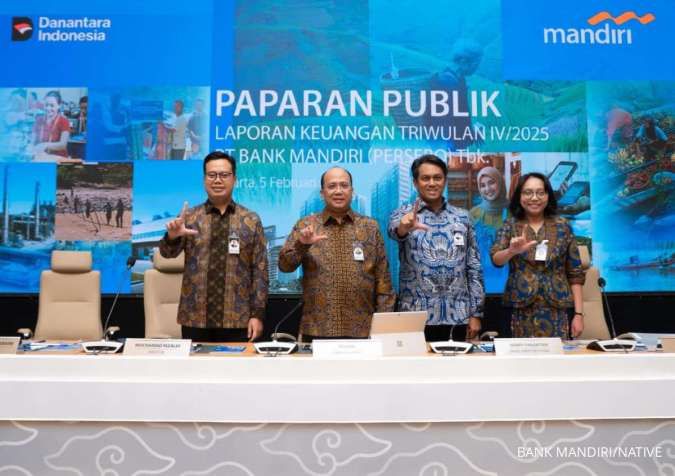JAKARTA. The government says it wants state gas distributor PT Perusahaan Gas Negara (PGN) to create a separate trading entity so that it can concentrate on its core mission of transportation.PGN’s current trade-and-transport role has been pegged as the reason behind high end-user prices for gas, according to the firm’s aggrieved business customers.“It may be in the form of a subsidiary company. There’s nothing formal yet, but talks have been underway,” Energy and Mineral Resources Ministry oil and gas chief Evita Herawati Legowo said on Monday.Evita’s comments came after PGN president director Hendi Priyo Santoso said he disagreed with the proposal to make the company a transporter only, claiming that PGN had successfully built a massive gas distribution network across the country.A 2009 ministerial decree on the gas pipeline business stipulates that companies using pipelines cannot also trade gas, and must establish new entities to do so. The debate over PGN’s role emerged following protests after the company increased its prices for industrial customers in South Sumatra, West Java, Jakarta and Banten by 55 percent. The price adjustment was made after the company renewed its contracts with South Sumatran suppliers ConocoPhillips and Pertamina EP. Under the new contracts, end users must pay an average price of US$10.20 per million British thermal unit (Btu), up from $6.80 per million Btu.Deputy Energy and Mineral Resources Minister Rudi Rubiandini said earlier that end users were paying too high a price for gas as PGN had been charging too much to transport and trade gas. He argued if PGN only transported gas, users would pay only a toll fee and prices would be more competitive. The government, PGN and industries have been discussing how to set new gas prices for industry. Energy and Mineral Resources Minister Jero Wacik previously said that prices might be rolled back as early as this week.PGN currently operates 5,800 kilometers of transmission and distribution pipelines across Indonesia, dominating around 90 percent of the gas infrastructure in the country.PGN reaped $582.15 million in revenue in the first quarter of the year, up 8 percent from $534.63 million in the same period last year. Its net profits stood at $275.93 million in the first three months of the year, up 13 percent from $242.25 million.In the first quarter, the company’s gas sales volume hit 787 billion Btu per day nationwide, with power plants as the company’s main receivers. Its transmitted gas volume was 861 billion Btu per day. Most gas was transported by PGN subsidiary PT Transportasi Gas Indonesia, which handles gas transportation from South Sumatra to Riau and from Batam to Singapore. (Rangga D. Fadillah/ The Jakarta Post)
Govt pushing PGN to spin off trading business
JAKARTA. The government says it wants state gas distributor PT Perusahaan Gas Negara (PGN) to create a separate trading entity so that it can concentrate on its core mission of transportation.PGN’s current trade-and-transport role has been pegged as the reason behind high end-user prices for gas, according to the firm’s aggrieved business customers.“It may be in the form of a subsidiary company. There’s nothing formal yet, but talks have been underway,” Energy and Mineral Resources Ministry oil and gas chief Evita Herawati Legowo said on Monday.Evita’s comments came after PGN president director Hendi Priyo Santoso said he disagreed with the proposal to make the company a transporter only, claiming that PGN had successfully built a massive gas distribution network across the country.A 2009 ministerial decree on the gas pipeline business stipulates that companies using pipelines cannot also trade gas, and must establish new entities to do so. The debate over PGN’s role emerged following protests after the company increased its prices for industrial customers in South Sumatra, West Java, Jakarta and Banten by 55 percent. The price adjustment was made after the company renewed its contracts with South Sumatran suppliers ConocoPhillips and Pertamina EP. Under the new contracts, end users must pay an average price of US$10.20 per million British thermal unit (Btu), up from $6.80 per million Btu.Deputy Energy and Mineral Resources Minister Rudi Rubiandini said earlier that end users were paying too high a price for gas as PGN had been charging too much to transport and trade gas. He argued if PGN only transported gas, users would pay only a toll fee and prices would be more competitive. The government, PGN and industries have been discussing how to set new gas prices for industry. Energy and Mineral Resources Minister Jero Wacik previously said that prices might be rolled back as early as this week.PGN currently operates 5,800 kilometers of transmission and distribution pipelines across Indonesia, dominating around 90 percent of the gas infrastructure in the country.PGN reaped $582.15 million in revenue in the first quarter of the year, up 8 percent from $534.63 million in the same period last year. Its net profits stood at $275.93 million in the first three months of the year, up 13 percent from $242.25 million.In the first quarter, the company’s gas sales volume hit 787 billion Btu per day nationwide, with power plants as the company’s main receivers. Its transmitted gas volume was 861 billion Btu per day. Most gas was transported by PGN subsidiary PT Transportasi Gas Indonesia, which handles gas transportation from South Sumatra to Riau and from Batam to Singapore. (Rangga D. Fadillah/ The Jakarta Post)

